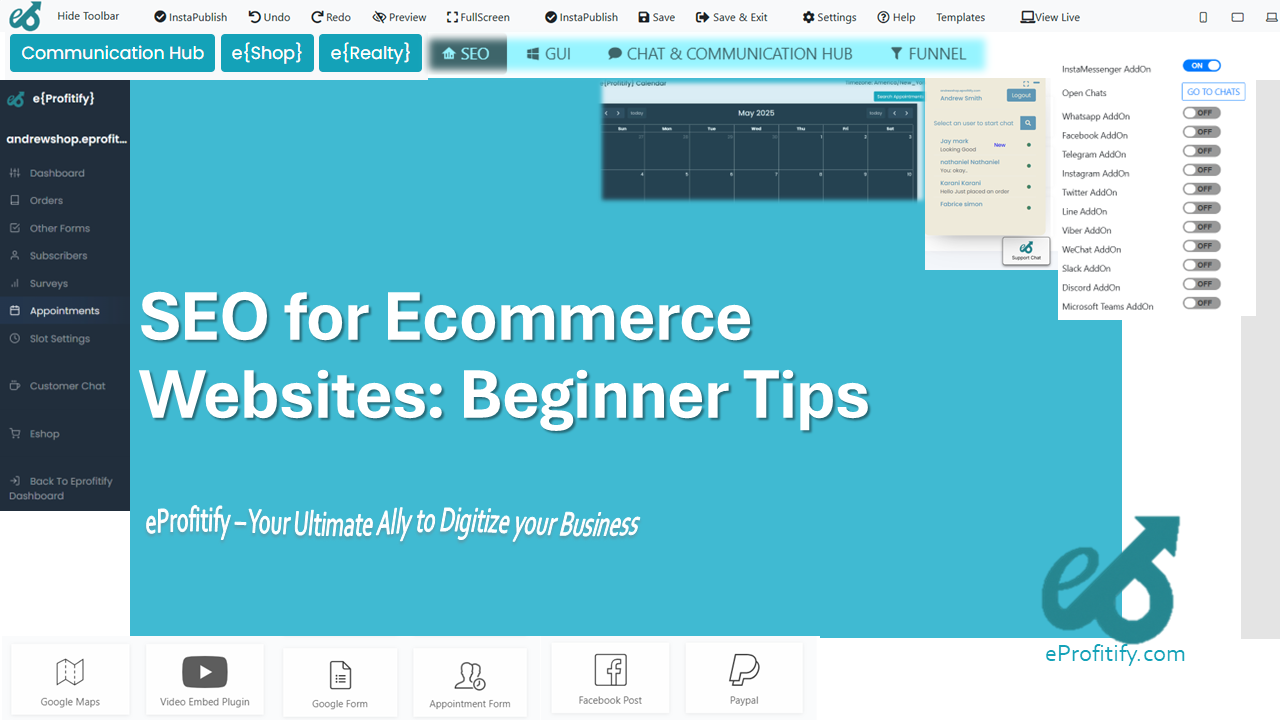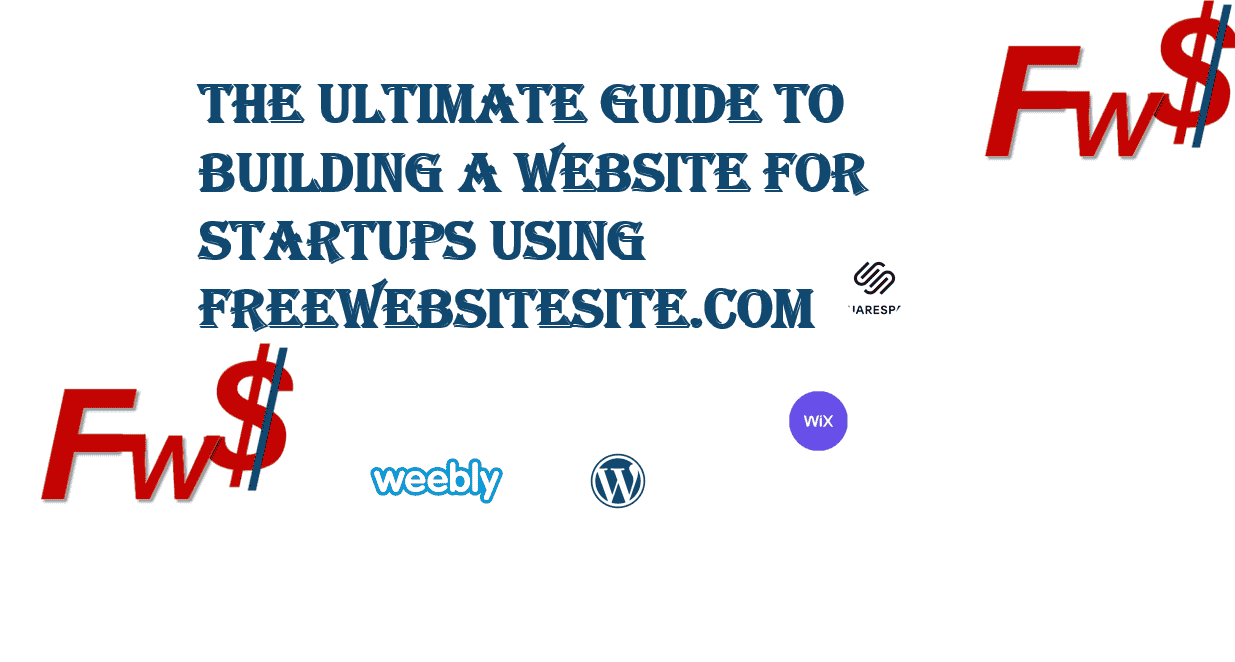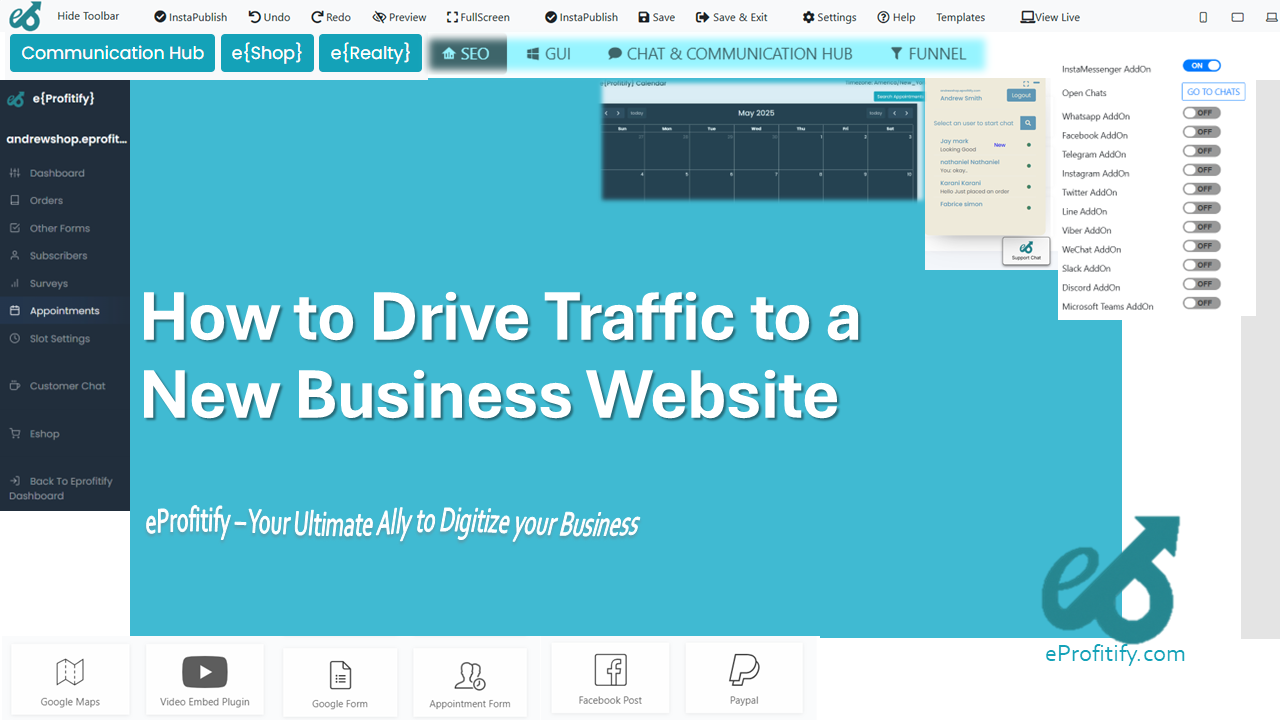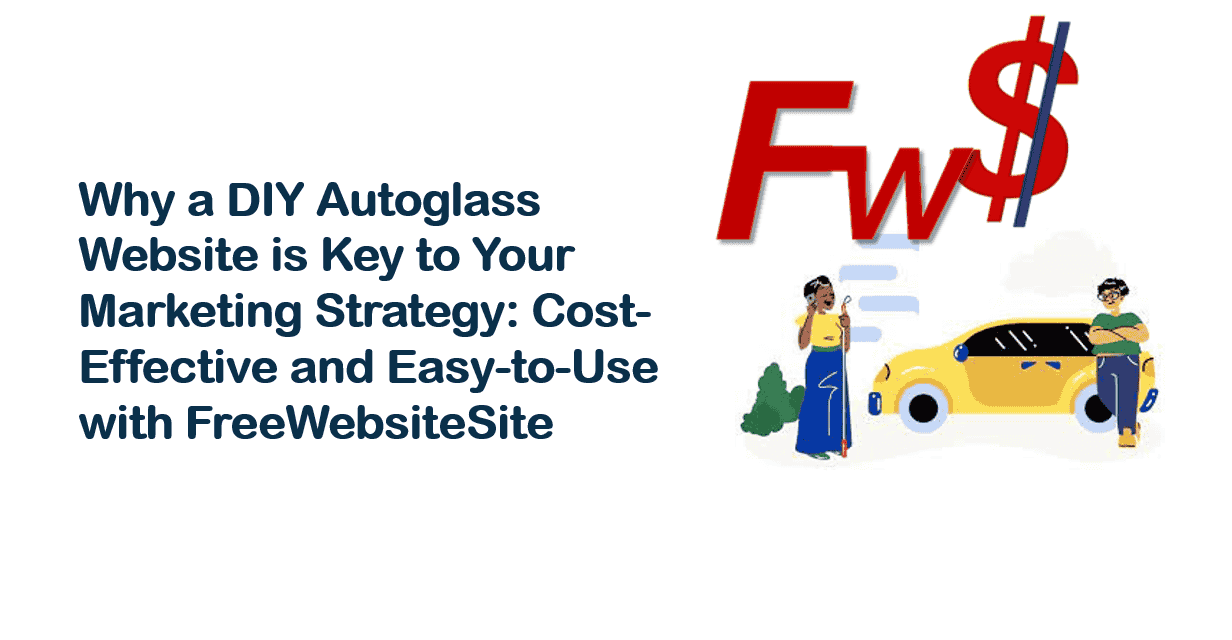SEO for Ecommerce Websites: Beginner Tips

SEO for eCommerce Websites: Beginner Tips with Key Stats and eProfitify Insights
Introduction
In 2023, 68% of online experiences begin with a search engine, making SEO indispensable for eCommerce success. With global eCommerce sales projected to exceed $6.3 trillion by 2024, standing out requires strategic optimization. This guide breaks down SEO fundamentals for beginners, supported by actionable stats, and highlights how eProfitify—a leading all-in-one platform—streamlines SEO and business management.
1. Keyword Research: The Foundation of eCommerce SEO
Start by identifying high-intent keywords. Tools like Google Keyword Planner and SEMrush help uncover terms like "buy organic skincare online" or "affordable wireless headphones."
- Stat: Long-tail keywords drive 70% more targeted traffic than generic terms.
- Tip: Prioritize buyer-focused keywords (e.g., "best," "reviews") in product pages and blogs.
- eProfitify Integration: The platform’s built-in SEO tools analyze keyword trends, aligning content with user intent.
2. On-Page SEO: Optimize Product Pages
Each product page should have unique meta titles, descriptions, and URLs.
- Stat: Optimized meta tags improve click-through rates by 5-15%.
- Tip: Use high-quality images (compressed for speed) with descriptive alt text.
- eProfitify Edge: Automates meta tag generation and image optimization, ensuring consistency across thousands of SKUs.
3. Technical SEO: Speed and Structure
Site speed and mobile responsiveness are non-negotiable.
- Stat: A 1-second delay in load time reduces conversions by 7%.
- Tip: Use Google’s Core Web Vitals to audit performance.
- eProfitify Advantage: Offers mobile-responsive templates and CDN integration, boosting page speeds by up to 40%.
4. Content Marketing: Engage and Convert
Blogs, guides, and videos build authority. For example, "How to Style Summer Dresses" can target seasonal shoppers.
- Stat: Content-driven businesses attract 55% more website visitors.
- Tip: Repurpose user-generated content (reviews, Q&A) into product descriptions.
- eProfitify Tools: CMS features streamline blog publishing, while CRM data informs content personalization.
5. User Experience (UX): Navigate with Purpose
Simplify navigation with intuitive categories (e.g., "Men’s Footwear → Running Shoes").
- Stat: Improved UX reduces bounce rates by up to 40%.
- Tip: Implement breadcrumb menus for easy backtracking.
- eProfitify Design: Pre-built templates ensure clean, user-friendly layouts optimized for conversions.
6. Mobile Optimization: Capture On-the-Go Shoppers
Over 60% of eCommerce traffic comes from mobile devices.
- Stat: Mobile-optimized sites see 50% higher sales.
- Tip: Test mobile usability via Google’s Mobile-Friendly Test.
- eProfitify Feature: Auto-optimizes product pages for mobile, including one-click checkout.
7. Local SEO: Dominate Your Region
Optimize for "near me" searches and Google My Business.
- Stat: 46% of Google searches are local.
- Tip: Embed location-specific keywords (e.g., "coffee beans delivery in Austin").
- eProfitify Plus: The appointment management system syncs with local listings, enhancing visibility for service-based businesses.
8. Analytics: Measure and Adapt
Track metrics like organic traffic and conversion rates using Google Analytics.
- Stat: Regular monitoring uncovers 30% more optimization opportunities.
- Tip: A/B test product page elements (e.g., CTAs, images).
- eProfitify Insight: Real-time dashboards highlight SEO performance, from keyword rankings to traffic sources.
9. Why eProfitify? Your All-in-One SEO Partner
eProfitify isn’t just an eCommerce platform—it’s a growth engine. Key features include:
- SEO Automation: Auto-generates meta tags, sitemaps, and alt text.
- CRM Integration: Personalizes marketing based on customer behavior, boosting engagement.
- Instant Messaging: Reduces bounce rates by resolving queries in real-time.
- Local SEO Tools: Manages Google My Business and local citations.
- Stat: Users report a 50% faster SEO ranking improvement compared to standalone tools.
With built-in analytics, mobile optimization, and a suite of business tools (inventory management, payment gateways), eProfitify simplifies scaling while keeping SEO at the forefront.
Conclusion
Mastering SEO for eCommerce demands a blend of technical know-how and strategic content. By leveraging platforms like eProfitify, businesses automate complex tasks, unify data, and stay agile in a competitive landscape. Start with these tips, track your progress, and watch your organic visibility—and sales—soar.


.png)




